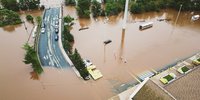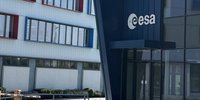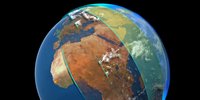About
Methane is the most important anthropogenic greenhouse gas after CO2 and is responsible for roughly a third of current global warming. Given its relatively short atmospheric lifetime of about a decade, methane is an essential target to slow down global warming on the short term. As such, over 155 countries have signed the Global Methane Pledge to reduce global methane emission by 30% in 2030 compared to 2020.
Over the past few years, we have seen a true revolution in our space-based ability to detect, identify, and quantify emissions from methane hot spots and large point sources (‘super-emitters’) that represent the low-hanging fruit for emission mitigation efforts. Contributing satellites range from flux mappers detecting methane super-emitters at ‘city-scale’ resolution globally every day to satellites that target methane emissions at ‘facility-level’ and include instruments not originally designed to observe methane that do not have operational methane products.
As such, the current space-based methane point source/hot spot observing system consists of a heterogeneous plethora of instruments with widely varying observation characteristics and the system will further expand over the next few years with the launch of new satellites. This makes the overall system complex and difficult to understand for policy users that have a strong need for information on super-emitters to enable mitigation activities and improve reporting of emissions under the UNFCCC Paris Agreement.
Objective
Within the MEDUSA project, we will compare the various satellite products, both from the same instrument using different algorithms and/or produced by different research teams, as well as between different satellites. Where possible, we will validate the emission products such as through controlled releases. We will also develop a framework for methane flux uncertainty for the various types of instruments. In addition, we will perform a few case studies highlighting the potential of these point source/hot spot methane observations. MEDUSA also has a work package on facility-level satellite observations of CO2, which is an even more recent area of research.
Current satellites in MEDUSA: Sentinel-5P TROPOMI, GHGSat Constellation, EMIT, EnMap, PRISMA, Landsat 8, Sentinel-2, Sentinel-3, and GOES.
Future satellites (TBC): GOSAT-GW, Sentinel-5, MTG, MethaneSAT , Carbon Mapper, …
Team
The MEDUSA Team has many members, represented here by the (sub-)WP leads:
- Ilse Aben, SRON Netherlands Institute for Space Research, Science Lead
- JD (Bram) Maasakkers, SRON Netherlands Institute for Space Research, Deputy Science Lead
- Karin Louzada, SRON Netherlands Institute for Space Research, Project Manager
- Michael Buchwitz, Institute of Environmental Physics (IUP) at the University of Bremen (UB)
- Javier Gorroño, Universitat Politècnica de València (UPV)
- Luis Guanter, Universitat Politècnica de València (UPV)
- Bart Dils, Royal Belgian Institute for Space Aeronomy (BIRA-IASB)
- Antoine Ramier, GHGSat
- Quentin Peyle, Kayrros
- Harjinder Sembhi, University of Leicester
- Simon Pinnock, ESA, Technical Officer
The MEDUSA User Group represents the broader (end-)user communities that can directly use the results of the project:
- Tomás Bredariol, International Energy Agency (IEA)
- Hugo Denier van der Gon, TNO
- Richard Engelen, CAMS/ECMWF
- Sander Houweling, VU (representing WMO’s IG3IS Scientific Committee)
- Itziar Irakulis-Loitxate, UNEP’s IMEO
The MEDUSA Advisory Board provides guidance on the coordination of the project with relevant external activities:
- Brendan Devlin, DG Energy, EC
- Paul Green, NPL
- Sander Houweling, project lead IM4CA, H2020 project
- Itziar Irakulis-Loitxate, UNEP’s IMEO
- Yasjka Meijer, CEOS/ESA
- Daniel Varon, Harvard University
Contacts
For more information about MEDUSA, please contact:
- Science Lead: Ilse Aben (SRON)
- Deputy Science Lead: JD (Bram) Maasakkers (SRON)
- Project Manager: Karin Louzada (SRON)
- Technical Officer: Simon Pinnock (ESA)
Latest news & events

Working for ESA: procurement and proposal submission process
An Introduction to ESA Star - ESA's System for Tendering and Registration
Mehr erfahren
Climate Change & Cities: Open Competitive Tenders Launched
Two New City Research Calls On Urban Resilience To Climate Change Using Earth Observation Data
Mehr erfahren
ESA at COP29
ESA is participating in COP29 to highlighting satellites' role in tackling climate change
Mehr erfahren

Call for new projects: Additional Essential Climate Variables
New R&D procurement as part of ESA's CLIMATE-SPACE programme
Mehr erfahren
